Exclusive interview: Tyler Hamilton
Armstrong, hypocrisy, and the Secret Race
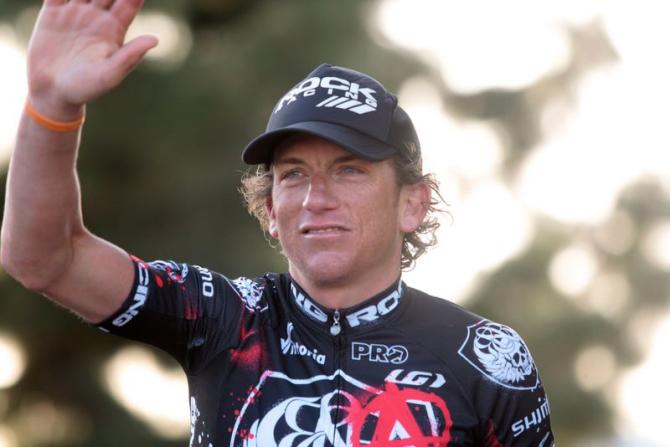
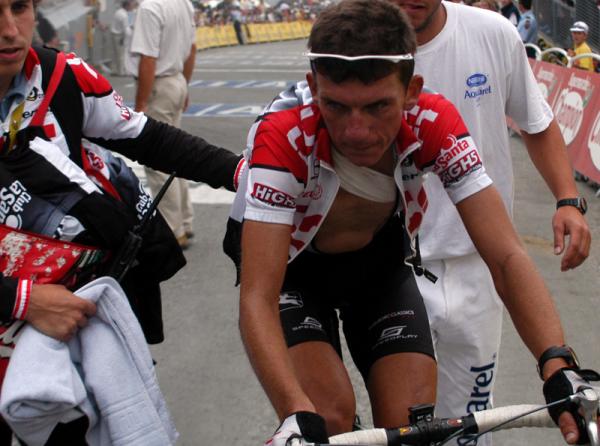
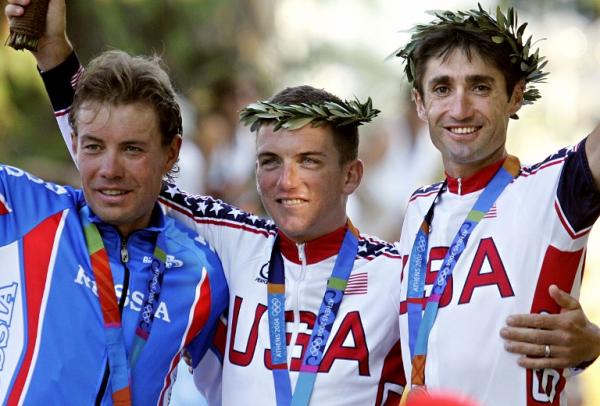
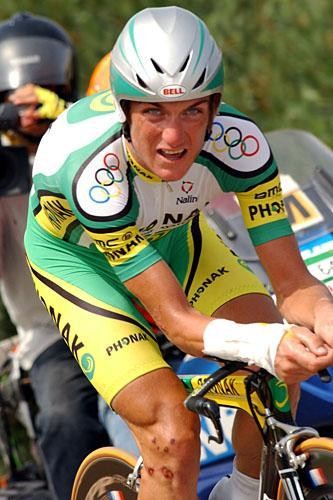
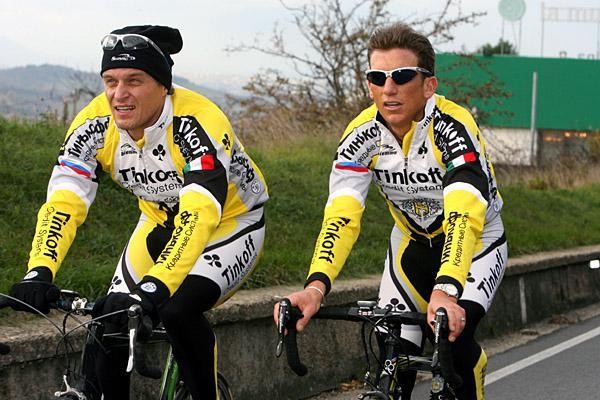
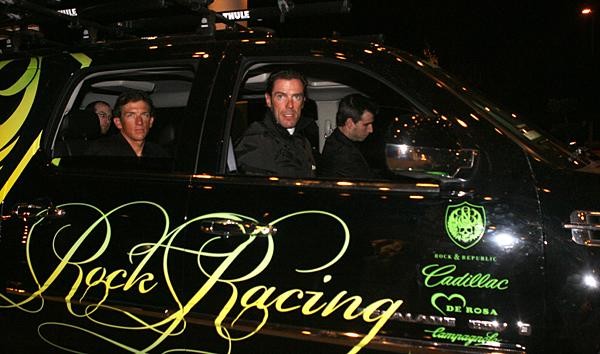
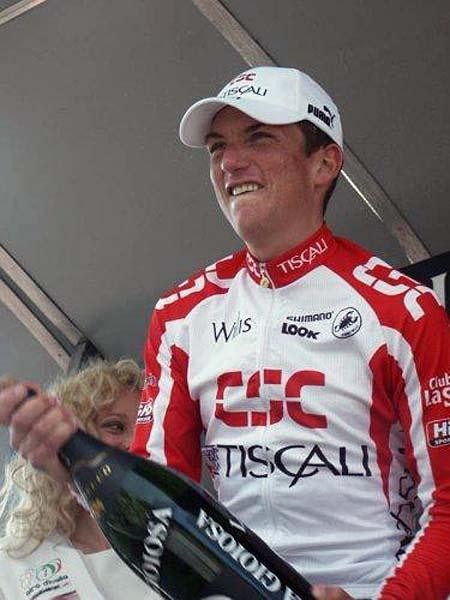
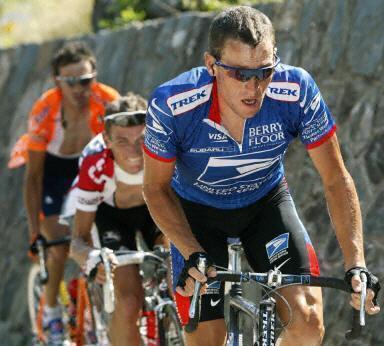
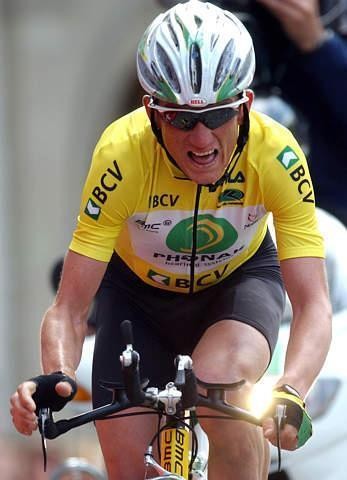
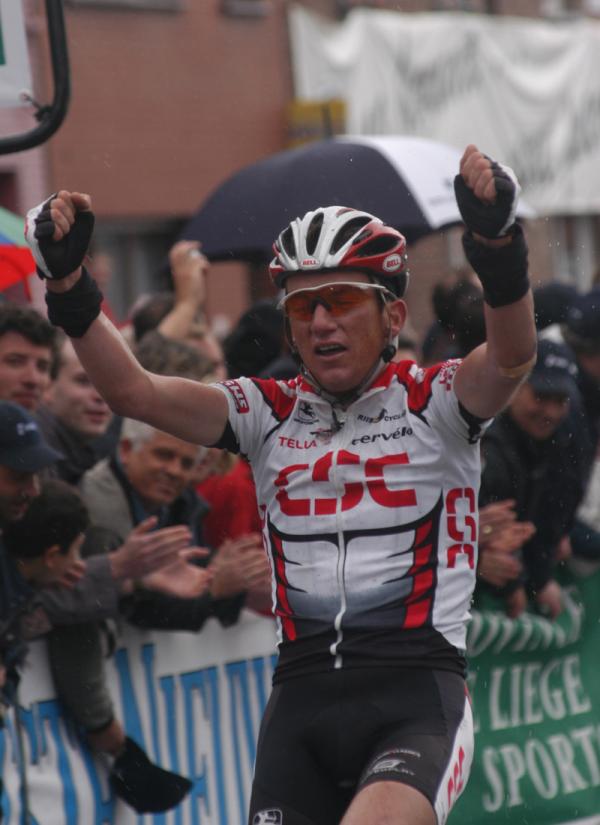
It's 2000, a month before the Sydney Olympics and Lance Armstrong and Tyler Hamilton have come to a stop in the centre of Sospel. The US Postal pair are halfway through a five hour sortie through the foothills around Nice and Sospel, and its sleepy seclusion offers a brief respite from the heat of the midday sun as the two men fill up their bidons.
Teammates, friends, brothers in arms, cheats and liars: these are heady days for the master and his apprentice. A second Tour win has been secured and everything on the surface is picture-perfect. Armstrong’s fire, Hamilton’s coolness - the ying and yang rule the French Riviera and nothing can stop them.
And things are about to get better. Armstrong wins a further five Tours, Hamilton paves his own career as team leader and wins an Olympic medal in 2004. The US cycling-scene surfs a wave of success, clinging to a generation of riders in the European scene.
Then the wheels begin to fall off. Hamilton tests positive twice, fights a futile battle, upholds omerta and finally, when at rock bottom and with federal investigators breathing down his neck, confesses to doping in May 2011. Armstrong has his comeback, but his own fall from grace is just around the corner and in a restaurant in Aspen, Colorado last year fire and ice go toe-to-toe as adversaries rather than friends.
Hamilton’s story, which he tells in the critically acclaimed ‘The Secret Race’ is one of desperation, fear, greed but above all, brutal honesty and the first steps of salvation. It’s not an autobiography in the typical sense, few characters are developed, but as a doping confession it’s monumental piece of work, depicting not just why he chose to cheat but why he continued to lie and battle when so much evidence pointed to the truth.
“In 2004 after I tested positive I wanted to come back as soon as possible,” Hamilton says when asked about his past and why he lied.
“I was at the peak of my fitness in cycling and if was going to have a chance of winning the Tour I needed to get back. If I told all, like I did by writing this book, then there wasn’t a chance.”
Get The Leadout Newsletter
The latest race content, interviews, features, reviews and expert buying guides, direct to your inbox!
“Back then it was super hard to take two steps back and look at the big picture. You’re so deeply involved in the sport. Do I wish I could have taken a step back and made the right decision then? Absolutely. My frame of mind was to get back as soon as possible and the last thing I could do was admit to everything. I couldn’t just answer questions for myself because it would open up a huge can of worms.”
The can became even bigger when the 'I believe Tyler’ fund was set up. Hamilton says that $25,000 was raised but never used. When he divorced his ex-wife the money was donated to a project to cure multiple sclerosis. Now he is willing to repay the funds, plus any prize money he earned while racing on doped teams.
“I will happily pay back race bonuses if someone can say what I owe and what percentage. I will happily. Send me the bill.”
“It’s embarrassing to say but it took a subpoena by the federal investigators to knock me over the head and get me to tell the truth. It was the best thing that ever happened. I really didn’t realise it. I knew going in that I was going to tell to the truth but I didn’t realise that telling the truth would be so good for me.”
The hypocrisy within the sport
Hamilton was unaware of the comment until later that night when a teammate confided in him. Pent up with rage at the audacity shown by the team director who was as a former doper and teammate, Hamilton approached him at dinner.
“I heard you said something about me?” Hamilton said in front of a crowd of riders at dinner.
The director froze to the spot and was suitably embarrassed.
“Well your team were great today,” Hamilton said smiling, realising he’d accomplished his task of making his accuser feel like an ass.
The same year Hamilton and his Rock Racing teammates were criticised by a prominent rider at another US race. ‘These guys shouldn’t be at the event’ the athlete told the press, pointing out that Hamilton’s and several of his teammates had been involved in Operacion Puerto. Hamilton was at the race but wasn’t racing.
During the next stage several of the Rock riders circled behind the offending rider. ‘Hey Luigi’ they heckled. ‘Luigi, fuck you.’
Luigi was of course the rider’s Puerto code name. Only Luigi had never been caught and never been sanctioned.
The hypocrisy hasn’t just been confined to the peloton though. Some of those in the press room played their part in building the myths too.
“I don’t want to name names but there are plenty of journalists who have been around a long time, based in Europe and they know the scoops,” Hamilton says with a laugh.
“It’s all of our faults though. I take responsibility for what I did and the mess I created but there were plenty of other people in the know. Maybe they didn’t know exactly what we were doing but they knew the sport was dirty. They continued to sponsor cycling and continued to profit from the relationships with these teams. Looking back at this whole mess I think a lot of people deserve responsibility for where the sport is today, from different avenues: sponsors, journalists.”
One journalist who didn’t toe the line was David Walsh. He and Hamilton recently met at the American’s new home in Montana.
“It’s funny. He came here to Montana and my wife and I met him at a café initially and I walked right by him. I didn’t even know what he looked like. But his name came up a lot in the Postal bus and sometimes I remember either Johan or Lance would point and say there’s that f-ing troll David Walsh’.”
“I never had the opportunity to talk to him,” Hamilton adds.
“The PR staff would never let that happen. Basically all the tough journalists, they would never get an interview. That’s not fair but the journalists who looked the other way so to speak they were the ones you got the interview. In a way they had to sway their opinions I guess. Certainly if they wrote a condescending interview that brought up a lot of speculation they wouldn’t get an interview. It’s just how it works.”
Lance the hero?
Hamilton admits that he played up to the press though. The boy-scout image and the goofy smile, it all helped to entice a press corps that were looking for a friendlier, more approachable version of Armstrong.
Hamilton would talk in handy soundbites, willing to talk up a good fight but also praise his former team leader. It was a golden ticket.
“I did play to the press, that’s for sure but at the time he was kind of a hero. Before I was even teammates I was watching that guy race in the Tour de Trump, before I even started racing and I was too shy to even ask for the guy’s autograph. He was a hero in the sport of cycling. Probably not the ideal hero but I certainly looked up to him,” Hamilton admits.
“After I was teammates, when I went to CSC and Phonak I was really nice to him in the press and some of my closer friends called me on it and asked why I was so nice to him because some of them knew about his bullying and stuff like that. Part of my was scared of him and I wanted to keep him on my good side. We were no longer good friends but I was nervous if I got on the wrong side of Lance Armstrong I was going to pay the price.”
Always on the edge of being caught, Hamilton was always aware that while the tests were easy to cheat, the rules ever-bending, he was still one mistake away from utter disaster.
“Lying was awful. I hated it. Obviously I had to answer questions to the press but I was lying to everybody. Everybody.
“I’d try not to think about it. Sometimes I’d catch myself and think, ‘wow this is just crazy what’s going on right now’ and obviously there were enough people in the know. The less people the better but enough knew the truth and I always thought to myself this could all blow up one day. I tried not to think too much about it.”
Laughed at, castigated and deplored for almost a decade, some even hold him up as a victim, even a hero for coming clean.
“I understand why they were critical. They should have been. If people have changed their tune I appreciate that. That doesn’t make me hero, you’ll never hear that from my mouth. I’ll carry this and there’s not a day that goes by when I don’t think about the poor decisions I made.”
Now based in Montana, Hamilton is as far removed from those Postal days as ever imaginable. He doesn’t appear to cling to the past nor revel in a campaign to see life-time bans for committing the same offences. He has nothing to lose, it’s true, but his calls for truth and reconciliation, rather than the truth and retribution hardliners advocate, appear as heart-felt as the lines from his book.
“If we don’t figure out what happened in the past and how we can prevent it happening again in the future, then it’s just going to happen again. The more information we can get from the past the better. Hopefully people will be able to come forward and tell the truth in the future. There are a lot of people who are tight-lipped right now who know plenty.”
“For a lot of these people still hiding the secrets it will feel good to tell the truth and hopefully someday they’ll have the opportunity. It doesn’t mean they’re bad people or that they need to leave the sport. It’s only going to help the sport if they come forward with their knowledge of the dark past.”
And what of Armstrong? In Sospel the pure spring water still flows from the fountain but the two former teammates are a world apart.
“I remember that ride, that one in 2000 and that little mountain village and with Lance. It’s never to late to tell the truth. Even when I did it, it was so late, but it had to be done. People appreciated it. I know a lot didn’t appreciate the timing but again it’s never too late to do the right thing and that’s what I’d say to Lance. It’s not too late for him. There’s a lot more he could have said on Oprah but I think people appreciated him coming out and being open. Hopefully it’s the first in many steps.”
Daniel Benson was the Editor in Chief at Cyclingnews.com between 2008 and 2022. Based in the UK, he joined the Cyclingnews team in 2008 as the site's first UK-based Managing Editor. In that time, he reported on over a dozen editions of the Tour de France, several World Championships, the Tour Down Under, Spring Classics, and the London 2012 Olympic Games. With the help of the excellent editorial team, he ran the coverage on Cyclingnews and has interviewed leading figures in the sport including UCI Presidents and Tour de France winners.
